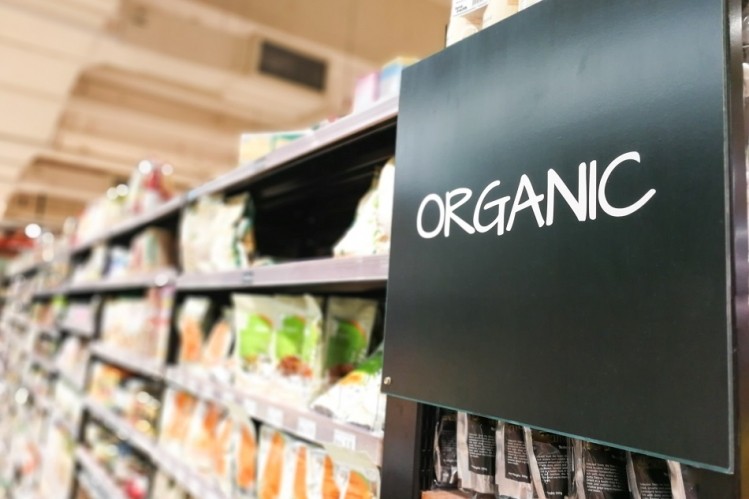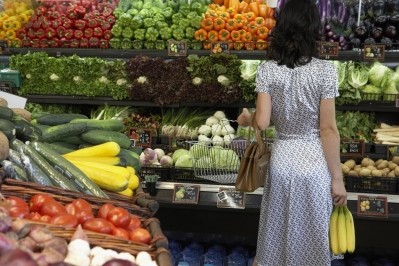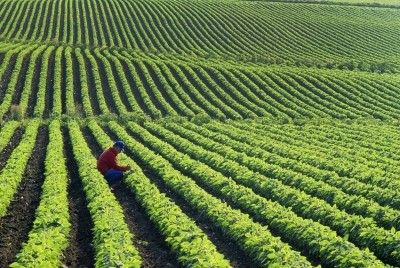Rabobank: Organic foods sales still growing but at a slower pace

"While we do expect organic sales to continue to post new records for the foreseeable future, we recognize that growth in the space has moderated, both in percentage and absolute terms," said the author of the report and Rabobank senior analyst of fresh produce, Roland Fumasi.
Between 2010 and 2016, retail organic food sales grew by an average of 10% per year. That growth has slowed to 5.9% for the past two years, according to Rabobank research.
At that rate, Rabobank predicts that organic food sales will reach $60bn by 2022.
"Organic produce availability has now become mainstream which means that the organic produce market will continue to more closely resemble the traditionally-grown produce market," said Fumasi.
Organic produce: The driver of the category?
Fruits and vegetables remained the top organic food category in 2018 in terms of total dollar sales representing 36% of all organic food purchases. However, even that category is showing signs of deceleration, noted Fumasi.
"Just a few short years ago, both organic produce prices and organic produce volumes were rising, indicating that demand expansion was occurring more rapidly than supply growth," Fumasi said.
"However, there are indications that continued growth in the organic movement has partially been driven by lower prices for some of the top-selling organic product items."
According to Fumasi, even as prices for top-selling organic product items have decreased so too has retail volume growth of these products with organic apples and tomatoes registering the slowest growth.
Growth in organic berry volumes was one exception as volume growth was notable higher in 2016-2018, according to Rabobank research.
Organic suppliers must adapt production strategies
"Technological advances and continued changes/improvements in production practices/knowledge will help ensure long-run profitability for adaptive suppliers," he said.
"Figuring out how to produce organically, at a unit cost that is similar to conventional production is the evasive, but long-run goal."
Market and consumer demand will continue
"Driven by consumer and retailer-centric demand forces and regulatory pressures that favor organic production, we expect organic produce production to continue to increase, and for long-run opportunities to continue to exist in this space," said Fumasi.
On the production side, Fumasi said that organic producers must continue to adapt their production strategies to lower costs.
"Technological advances and continued changes/improvements in production practices/knowledge will help ensure long-run profitability for adaptive suppliers," he said.
"Figuring out how to produce organically, at a unit cost that is similar to conventional production is the evasive, but long-run goal."
According to Nielsen sales data, consumers across all age groups are spending more on organic product compared to previous years (+9.5% in annual household spend on organic products in 2018 compared to 2017*).
By generational segments, millennials are spending nearly 14% more on organic products and making 9.8% more trips to the grocery store compared to a year ago*, followed by Gen X shoppers who spent 9.5% more on organic items and boomers spending 7.2% more on organic.
Spending on organics by the Greatest Generation (individuals born between 1910 and 1924) increased the least (+1.5%) in 2018 compared to the year prior.
“Where the average American household is spending just 0.2% more across overall FMCG, the pace of purchasing happening among organic goods is exceptional and is breathing life into otherwise flat or contracting aisles of the store,” Nielsen said.
* Nielsen Homescan, household projected data, Total U.S., 52 weeks ended Nov. 24, 2018 vs. year-ago.
Fumasi predicts that in a few years, demand for organic produce will see an uptick in volume sales as millennials grow their disposable income and start their own families.
And further out, "Gen Z consumers will ultimately add fuel to these trends," added Fmasi.

















